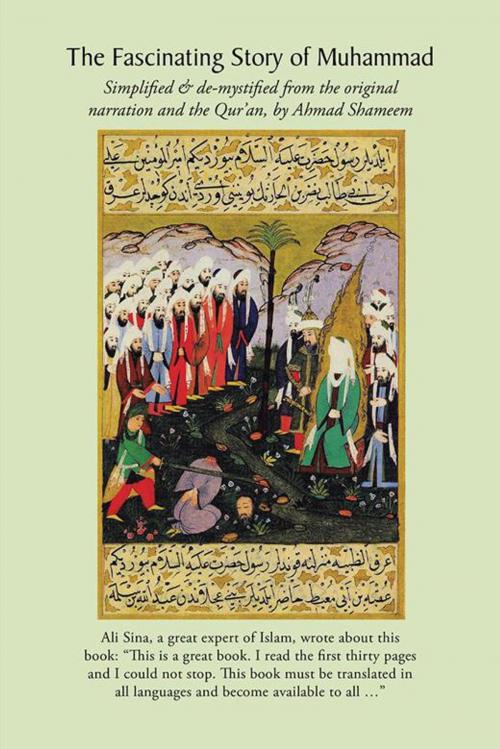The Fascinating Story of Muhammad
Simplified & De-Mystified from the Original Narration and the Qur’An
Nonfiction, Religion & Spirituality, Middle East Religions, Islam| Author: | Ahmad Shameem | ISBN: | 9781491889015 |
| Publisher: | AuthorHouse UK | Publication: | January 9, 2014 |
| Imprint: | AuthorHouse UK | Language: | English |
| Author: | Ahmad Shameem |
| ISBN: | 9781491889015 |
| Publisher: | AuthorHouse UK |
| Publication: | January 9, 2014 |
| Imprint: | AuthorHouse UK |
| Language: | English |
Ali Sina, a great expert of Islam, wrote about this book: This is a great book. I read the first thirty pages and I could not stop. This book must be translated in all languages and become available to all Narrating the story in the gripping way of a good novel, it tells about Muhammad, his believer and unbeliever tribal relatives, the Qur'an, and the Arabian society of the period as truthfully and originally as the oldest Arab records make it possible. It does not fail to shock and surprise when one finds that during his twenty-three years of apostolate, Muhammad arranged for banditry raids, secret assassinations, ransom taking, kidnappings, slave trading, ethnic cleansing, inter-tribal wars, and murderous expeditions. Of these raids, the number of well recorded and documented, discussed by the Qur'an itself, is thirty-eight. Muhammad personally took part in twenty-seven raids and battles in nine of which he was directly engaged in killing. These were the battles of Badr, Uhud, Ahzaab, Hunayn, and Ta'if, the massacres of the Qurayza and the Khyber Jews, the surprise raid on the Mustalaq, and the occupation of Mecca. History tells us that many kings started as bandits and came to rule vast territories. If Muhammad had claimed that he was a king, one could place him amongst the greatest of kings but the surprise lies in his claim that he was God's most favourite and final prophet. If prophets were to kill and plunder, sell slaves, hold captives for ransom, allow rape of slave women, and develop systems of extortion, how does one differentiate between a Godly man and a king?
Ali Sina, a great expert of Islam, wrote about this book: This is a great book. I read the first thirty pages and I could not stop. This book must be translated in all languages and become available to all Narrating the story in the gripping way of a good novel, it tells about Muhammad, his believer and unbeliever tribal relatives, the Qur'an, and the Arabian society of the period as truthfully and originally as the oldest Arab records make it possible. It does not fail to shock and surprise when one finds that during his twenty-three years of apostolate, Muhammad arranged for banditry raids, secret assassinations, ransom taking, kidnappings, slave trading, ethnic cleansing, inter-tribal wars, and murderous expeditions. Of these raids, the number of well recorded and documented, discussed by the Qur'an itself, is thirty-eight. Muhammad personally took part in twenty-seven raids and battles in nine of which he was directly engaged in killing. These were the battles of Badr, Uhud, Ahzaab, Hunayn, and Ta'if, the massacres of the Qurayza and the Khyber Jews, the surprise raid on the Mustalaq, and the occupation of Mecca. History tells us that many kings started as bandits and came to rule vast territories. If Muhammad had claimed that he was a king, one could place him amongst the greatest of kings but the surprise lies in his claim that he was God's most favourite and final prophet. If prophets were to kill and plunder, sell slaves, hold captives for ransom, allow rape of slave women, and develop systems of extortion, how does one differentiate between a Godly man and a king?















